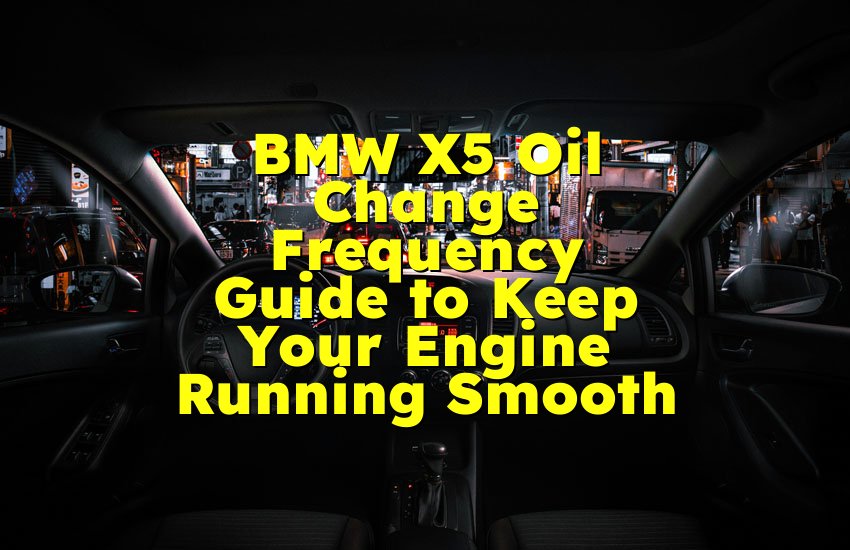As an Amazon Associate, I earn from qualifying purchases at no extra cost to you.
My Car Sound Like It Has a Flat Tire But It Doesn’t? Solved!
Anyone who has ever driven a car knows that strange noises can be pretty concerning. If your car sounds like it has a flat tire but you checked and it doesn't, you might feel confused or worried. This issue can happen for a few reasons, and it's important to figure out what's going on. In this article, we'll explore some common causes for those weird sounds. Understanding these noises can help you keep your car running smoothly and avoid any surprises on the road. Let’s dive in!
Understanding the Symptoms
When your car makes a noise that sounds like a flat tire, it can be pretty confusing, especially if the tires are fine. You might hear a thumping or flapping sound as you drive. This noise usually comes from the tires, but it can also be from other parts of the car. Sometimes, if you feel a shaking in the steering wheel or the car itself, it can be a sign of trouble.
Pay attention to how the car feels when you drive. If it pulls to one side or the other, that could mean something isn't right. Also, if you notice uneven tire wear or see any visible damage to the tires, that's another clue. Don't forget about how your car handles. If it feels bouncy or unsteady, those could be signs of issues with the suspension.
It's important to take note of these symptoms because they help in figuring out what's wrong. Sometimes, it might just be a small problem, but ignoring it can lead to bigger issues later. So, listen closely and feel your car as you drive. If something seems off, it's best to check it out before it turns into a more serious problem.
Possible Causes of the Car Sound Like It Has a Flat Tire But It Doesn’t
If your car sounds like it has a flat tire but doesn't, it can be confusing. Several issues might cause this strange noise. Here are some common reasons for the sound.
Worn or Damaged Tires
One main cause of tire-like noises is worn or damaged tires. Tires can lose their grip over time due to wear and tear. If your tires are old or have uneven wear, they may make noise that sounds like a flat tire. Check your tire tread. If it is low or uneven, it's time for new tires.
Issues with Wheel Bearings
Another cause of the noise could be problems with the wheel bearings. Wheel bearings help your tires spin smoothly. If they are damaged or worn out, they can create a rumbling or grinding sound. This noise might feel like it is coming from the tires, but it's actually the wheel bearings that need attention.
Suspension Problems
Suspension problems can also lead to sounds that mimic flat tires. The suspension system helps keep your car steady and smooth on the road. If parts of the suspension, like shocks or struts, are worn out, they can make clunking or banging sounds. This can feel similar to the noise of a flat tire. It's important to get any suspension issues checked by a mechanic.
Loose or Damaged Exhaust Systems
A loose or damaged exhaust system might also create noises that sound like a flat tire. If your exhaust pipes are hanging down or have holes, they can rattle and cause strange sounds. Sometimes, this noise can be mistaken for something wrong with the tires. Have a look under your car to see if the exhaust system looks okay.
Misaligned Wheels
Misaligned wheels can lead to unusual noises while driving. If your wheels are not aligned properly, they might not sit straight on the road. This can cause uneven wear on your tires, leading to noise that sounds like a flat. If you notice your car pulling to one side, you might need a wheel alignment.
Debris in the Tires
Sometimes, small stones or debris can get stuck in the tread of your tires. This can cause a noise similar to that of a flat tire. It might sound like something is wrong, but it could just be a small piece of junk stuck in your tire. Check your tires for any debris that might be causing the sound.
Several factors could make your car sound like it has a flat tire when it doesn’t. Regular checks and maintenance can help catch these issues early, so you stay safe on the road. If you hear strange noises, it’s always a good idea to investigate further or see a mechanic.

Preventative Measures Car Sound Like It Has a Flat Tire But It Doesn’t
Taking care of your car can help prevent noises that sound like a flat tire. Here are some easy steps you can follow to keep your vehicle in good shape.
Regular Tire Inspections
Check your tires often to ensure they are in good condition. Look for signs of wear, like low tread or cracks in the rubber. Use a penny to check the tread depth. If you can see the top of Lincoln’s head, it's time for new tires. Regular checks help catch problems early.
Proper Tire Inflation
Keeping your tires properly inflated is important. Under-inflated tires can cause noises and lead to faster wear. Use a tire pressure gauge to check the pressure at least once a month. You can find the correct pressure in your car's manual or on a sticker inside the driver's door. Make sure to fill them up when they are low.
Routine Wheel Alignments
Getting your wheels aligned regularly can help prevent noises and uneven tire wear. Misaligned wheels can lead to issues that mimic flat tire sounds. Most mechanics recommend a wheel alignment every 6,000 miles or whenever you notice your car pulling to one side. This simple check can save you from bigger problems later.
Suspension Checks
Your car’s suspension system should also be checked regularly. A worn suspension can cause noises similar to flat tires. When you take your car in for service, ask your mechanic to inspect the shocks and struts. If they find any issues, it's best to fix them right away.
Keep Your Tires Clean
Keeping your tires clean helps you spot issues easily. Wash your tires regularly to remove dirt and debris. This way, you can see if any stones or trash are stuck in the tread that could cause noise. A clean tire is easier to inspect for damage.
Scheduled Maintenance
Finally, don't skip regular maintenance on your car. Following the manufacturer's service schedule helps catch small problems before they become big issues. During these check-ups, mechanics can look at your tires, brakes, and suspension. This will help ensure everything is running smoothly.
By following these simple preventative measures, you can reduce the chances of hearing noises that sound like flat tires. Taking care of your car not only keeps it running well but also keeps you safe on the road. Regular checks and maintenance can save you time and money in the long run, so make them part of your routine!
Are These Questions in Your Mind?
Is it normal for my car to make noises while driving?
Yes, some noises are normal, like the sound of the engine or the tires on the road. However, unusual or loud noises could indicate a problem.
Can I drive my car if it sounds like a flat tire?
It’s best not to drive your car if it sounds like a flat tire. The noise could indicate a serious issue that needs immediate attention.
Do I need to check my tire pressure regularly?
Yes, checking your tire pressure regularly is important for safety and tire longevity. Ideally, you should check it at least once a month.
Is it possible for a new tire to make noise?
Yes, new tires can make noise, especially if they have a rough tread pattern. However, if the noise is excessive, it might be a sign of improper installation or alignment.
Can I fix a suspension issue myself?
While some minor issues can be fixed at home, most suspension repairs are best left to professionals. It requires special tools and knowledge to ensure safety.
Do I have to replace all my tires at once?
No, you don't always have to replace all your tires at once, but it's best to replace them in pairs (front or back) to maintain even handling and grip.
Is it safe to drive with a small puncture in my tire?
A small puncture can sometimes be repaired, but driving on it is not safe. It's best to have it checked by a professional as soon as possible.
Can I hear the sound of a flat tire in the cabin?
Yes, noises from tires, including those that sound like a flat, can often be heard inside the car, especially if the cabin is quiet.
Is tire rotation really necessary?
Yes, tire rotation is necessary to ensure even tire wear. This helps extend the life of your tires and improve your car’s handling.
Do I need to get my tires balanced after rotation?
Yes, balancing your tires after rotation is recommended. This helps ensure a smooth ride and reduces uneven wear.
I hope this article helped you understand why your car might sound like it has a flat tire even when it doesn’t. By checking your tires, suspension, and other parts regularly, you can keep your car safe and running well. If you hear strange noises, don’t hesitate to ask a mechanic for help. Safe driving!











